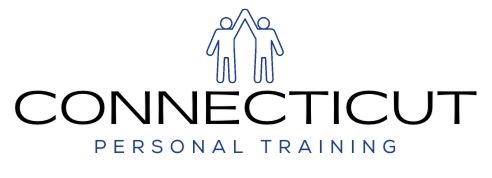Nutrition coaches are gaining more and more popularity as people seek to take better care of their health and reach certain dietary objectives. Nutrition coaches are often sought after by those trying to lose weight, build muscle, control a health condition, or just lead a healthier life. A frequent question that comes up is: “Do nutrition coaches provide meal plans?” This article will discuss the job description of a nutrition coach, the rules regarding the provision of meal plans, and the way nutrition coaches can assist their clients with their diet.
What is a Nutrition Coach?
A nutrition coach is an expert who assists clients in improving their dietary patterns, informs them about nutrition, and helps them in making better food choices. Nutrition coaches are usually focused on long-term sustainable changes as opposed to short-term solutions or fad diets. They collaborate with clients who have certain objectives, including weight loss, coping with a chronic illness, or enhancing athletic performance.
Unlike dietitians, who are licensed healthcare professionals with advanced degrees in nutrition, nutrition coaches do not typically offer medical nutrition therapy or treat medical conditions. Instead, they collaborate with people to create healthy eating habits and to encourage overall wellness.
Can Nutrition Coaches Provide Meal Plans?
Whether a nutrition coach is allowed to provide a meal plan is dependent on his or her qualifications, the state or country he or she is practicing in, and the scope of his or her job. In the United States, meal plans may be provided by nutrition coaches under certain conditions. However, there are some important distinctions to consider.
The Difference Between Nutrition Coaches and Registered Dietitians
Registered Dietitians (RDs) or Registered Dietitian Nutritionists (RDNs) are qualified professionals with a lot of education and training. They have the right to offer medical nutrition therapy, diagnose eating disorders, and develop meal plans for people with particular medical conditions, including diabetes, heart disease, or food allergies.
Nutrition coaches, however, are not licensed medical practitioners, and usually do not have the authority to diagnose or treat illnesses. They can give only general advice on healthy eating and offer tips on meal planning, but their role is restricted to general nutrition education. Nutrition coaches will, on most occasions, refer their clients to an RD if the patient has specialized diet needs or medical conditions.
State Laws and Regulations
Depending on the state, the regulations on what nutrition coaches can and cannot do are different. There are some states with strict regulations, where nutrition coaches are not allowed to provide meal plans or nutritional recommendations that are not within certain guidelines. Nutrition coaches in other states might be allowed to provide meal planning services so long as they do not purport to treat medical conditions or provide medical nutrition therapy.
Nutrition coaches need to know the laws of their particular state or region before offering meal plans to prevent legal problems. Also, most nutrition coaches are under the guidance of a licensed RD to make sure that their recommendations and meal plans are in line with professional requirements.
How Can Nutrition Coaches Support Meal Planning?
Although nutrition coaches might not be in a position to offer highly personalized or medically customized meal plans as a Registered Dietitian would, they can still contribute greatly to the process of meal planning for clients.
The following are some of the ways in which nutrition coaches can help in planning meals:
Providing General Guidance and Education
Nutrition coaches are able to inform clients about the fundamentals of nutrition, including macronutrients (proteins, fats, carbohydrates), micronutrients (vitamins and minerals), and portion control. With this knowledge of the main principles, clients will be able to make informed decisions regarding what they should include in their meals. Coaches can also provide tips on balanced eating, e.g., the necessity to eat a variety of foods, preferring whole and unprocessed foods.
Helping Clients Build a Framework for Meal Planning
Instead of rigid meal plans, nutrition coaches can guide clients in creating a customized meal planning system that fits their personal taste and lifestyle.
Coaches may suggest strategies such as:
- Batch cooking to save time during the week.
- Creating a weekly grocery list with nutritious ingredients.
- Giving meal prepping suggestions that are easy and feasible.
Providing such kinds of frameworks, nutrition coaches assist clients in acquiring skills and knowledge to plan their meals on their own, which may result in long-term success.
Encouraging Healthy Habits and Sustainable Goals
Nutrition coaches tend to focus on realistic and sustainable goal setting of clients. Coaches can collaborate with clients by determining their goals, and then assist them in making incremental changes rather than prescribing a particular meal plan. As an example, a coach may propose to add more vegetables to a client’s diet or to cut down on processed sugar consumption. Such minor, manageable changes have a higher chance of resulting in long-term results than the restrictive, one-size-fits-all meal plans.
Personalizing Recommendations Based on Client Preferences
Although nutrition coaches may not be able to offer very specific meal plans for medical conditions, they can give specific recommendations based on dietary preferences and the lifestyle of a client. If a client is vegetarian, gluten-free, or has certain taste preferences, a nutrition coach can provide the general meal ideas that will satisfy the client’s preferences. Coaches can also give meal recommendations for various lifestyles, e.g., busy schedules or athletes who require more protein to recover their muscles.
Collaborating with Other Health Professionals
If a client has a particular medical condition that needs an individualized meal plan, a nutrition coach can work with a registered dietitian or other medical professional to make sure that the client is taken care of. In this situation, the nutrition coach can still offer general support and accountability, and the dietitian can work on a more medically specific plan.



